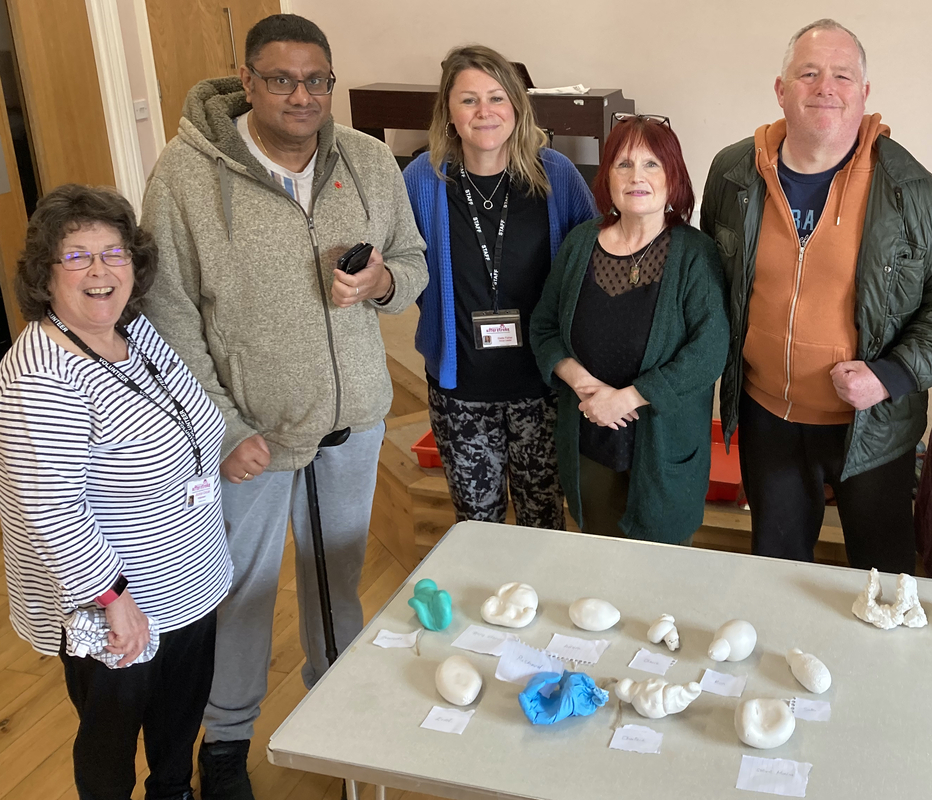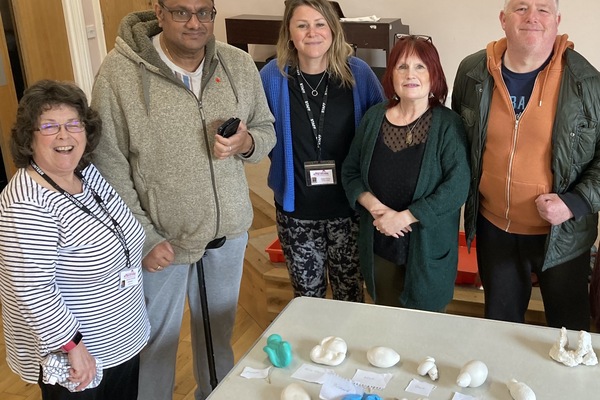
A dozen or so stroke-affected Bristolians have been channelling their “inner Henry Moore” at a pioneering new initiative.
The first of three sculpting workshops run by the Royal West of England Academy (RWA) on behalf of Bristol After Stroke (BAS) has been held at Crofts End Church in Speedwell. It has brought together local sculptor “Wez” with people who have impaired mobility following a stroke – demonstrating the positive impact that accessible art can have.
Those taking part tried their hand at an ingenious way to create hand-moulded abstract sculptures using nothing more than plaster, water, a zip lock bag, water bottle and balloon.
Says Wez: “We carefully designed the workshop around the hand movement that is possible, bearing in mind that strokes affect people very differently, using materials that anyone can access – and also try again at home.
“Today has been a ‘test drive’ for the workshop, but it has worked so well that we’ll be holding two more workshops in the coming weeks.”
Funding support
The workshops have, appropriately, been made possible by funding from the Henry Moore Foundation, the charity set up by arguably Britain’s greatest ever sculptor.
As well as enabling stroke survivors to express themselves artistically, the workshop provided valuable therapy through strengthening their hands and improving their motor skills.
Says BAS Group Leader Stella Fisher, who supervised the session: “As far as we are aware, this is the first-ever sculpting workshop for stroke survivors – and it has proved to be an amazing way for the people we support to learn something new and build confidence. Recovering from a stroke is a long and often difficult journey.
"Initiatives like this can have a hugely positive effect on stroke-affected people’s lives, and if we can raise more funding we hope to run more accessible art workshops around the city in the future.”
Helen Jacobs, Head of Learning & Engagement at the RWA Gallery adds: “This is a perfect example of what can be achieved by bringing together artists and community groups.
“The RWA and BAS have formed a really good relationship. Members took part in collage workshops run by artist Jill Carter, worked with artists and neuroscientists and had their art exhibited on our walls to celebrate their achievements.
"We’ve also been welcoming Bristol After Stroke members to our gallery, which is striving to become more accessible.
“We hope to engage more disabled people with art for wellbeing in this way, as we have other artists who would love to run workshops with BAS if we can raise the funding!”





